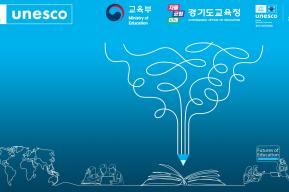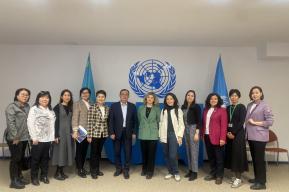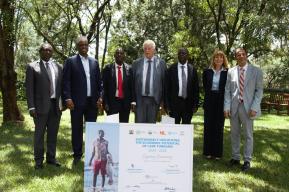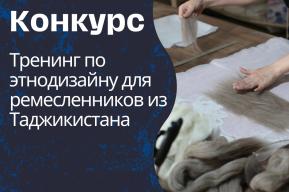Article
INTERNATIONAL DAY OF EDUCATION 2022 “Changing Course, Transforming Education-TVET as future career option for youth”
The office of the United Nations Educational, Scientific and Cultural Organization "UNESCO" in Ramallah organized an interactive dialogue session entitled "Vocational and Technical Education and Training as a Future Option for Palestinian Youth".
The dialogue session comes as a celebration of the International Day of Education 2022 and as part of the awareness campaign activities targeting the Palestinian community to raise awareness on the importance of Technical, Vocational Education and Training (TVET) as a strategy to combat the rising unemployment among the Palestinian youth which UNESCO is supporting.
Representatives of relevant stakeholders from the governmental and non-governmental institutions, the private sector and international institutions working in TVET in Palestine joined students from the TVET and general education tracks to dialogue.
Sonia Abu Al-Ezam, UNESCO Senior Programme Officer, said that the UNESCO Ramallah office "contributes to addressing the issue of increasing youth unemployment by raising awareness on the importance of technical, vocational education and training in Palestine, as UNESCO supports member states to guide young people to obtain professions and specializations that suit the requirements of the job market".
The session aimed to raise awareness of the importance of technical, vocational education and training, which contributes to creating job opportunities for Palestinian youth, by examining the success stories and opportunities created by the professional sector, in addition to knowing the most important challenges facing this sector and preventing young people from engaging in the labour market.
The latest data from the Palestinian Central Bureau of Statistics on the result of the Labour Force Survey, 2021 indicates that the unemployment rate in Palestine reached 26% in 2021, and the total labour underutilization reached 34%. The percentage of students who go to academic education is 92% which implies only 8% of students attend TVET.
A female student at Kafr Nima Industrial School Ruqayya Mora said: “I am studying “graphic design”, and today I shared my experience with students in the tenth grades in academic schools,” adding: “I advised them to go towards vocational and technical education because it makes a distinguished student and enhances talents and personal inclinations, as I advised them [to] pursue their own passion and ambition.”
Haneen Qabha, a student at Ramallah Girls' Secondary School, indicated that she participated in the workshop to learn about technical and vocational education and the job opportunities it provides, stressing that the dialogue session broadened her horizons and drew her towards studying fashion design as a new and non-stereotypical major. In the same context, Nidal Ayesh, an expert at the Belgian Development Agency, said, "The Belgian Development Agency has been supporting the vocational education sector for years, and there are more future projects that will enhance the youth category in vocational education and training."
TVET aims to provide society with a skilled, trained workforce, and qualified technicians and technicians who are able to contribute to the development of industry, agriculture and infrastructure in keeping pace with modern scientific and technological developments and monitor their impact on various economic sectors.
Furthermore, TVET also aims to provide individuals with the knowledge and skills required by professional specialization in accordance with the principles and standards accepted in the ever-changing labour market, meaning that TVET creates awareness of the reality of the labour market and how it changes in individuals.
It is worth noting that this dialogue session was supported through two UNESCO Ramallah Office projects namely, “TVET4Future” funded by the Belgian Development Agency (ENABEL), and the project “Developing digital education and skills for sustainable development through distance learning in Palestine” funded by the Japanese government, and in cooperation with Ministries and the competent authorities (the Ministry of Education, the Ministry of Higher Education and Scientific Research, the Ministry of Labour, and the TVET commission) and implemented by Watan Media Network.
The dialogue session comes as a celebration of the International Day of Education 2022 and as part of the awareness campaign activities targeting the Palestinian community to raise awareness on the importance of Technical, Vocational Education and Training (TVET) as a strategy to combat the rising unemployment among the Palestinian youth which UNESCO is supporting.
Representatives of relevant stakeholders from the governmental and non-governmental institutions, the private sector and international institutions working in TVET in Palestine joined students from the TVET and general education tracks to dialogue.
Sonia Abu Al-Ezam, UNESCO Senior Programme Officer, said that the UNESCO Ramallah office "contributes to addressing the issue of increasing youth unemployment by raising awareness on the importance of technical, vocational education and training in Palestine, as UNESCO supports member states to guide young people to obtain professions and specializations that suit the requirements of the job market".
The session aimed to raise awareness of the importance of technical, vocational education and training, which contributes to creating job opportunities for Palestinian youth, by examining the success stories and opportunities created by the professional sector, in addition to knowing the most important challenges facing this sector and preventing young people from engaging in the labour market.
The latest data from the Palestinian Central Bureau of Statistics on the result of the Labour Force Survey, 2021 indicates that the unemployment rate in Palestine reached 26% in 2021, and the total labour underutilization reached 34%. The percentage of students who go to academic education is 92% which implies only 8% of students attend TVET.
A female student at Kafr Nima Industrial School Ruqayya Mora said: “I am studying “graphic design”, and today I shared my experience with students in the tenth grades in academic schools,” adding: “I advised them to go towards vocational and technical education because it makes a distinguished student and enhances talents and personal inclinations, as I advised them [to] pursue their own passion and ambition.”
Haneen Qabha, a student at Ramallah Girls' Secondary School, indicated that she participated in the workshop to learn about technical and vocational education and the job opportunities it provides, stressing that the dialogue session broadened her horizons and drew her towards studying fashion design as a new and non-stereotypical major. In the same context, Nidal Ayesh, an expert at the Belgian Development Agency, said, "The Belgian Development Agency has been supporting the vocational education sector for years, and there are more future projects that will enhance the youth category in vocational education and training."
TVET aims to provide society with a skilled, trained workforce, and qualified technicians and technicians who are able to contribute to the development of industry, agriculture and infrastructure in keeping pace with modern scientific and technological developments and monitor their impact on various economic sectors.
Furthermore, TVET also aims to provide individuals with the knowledge and skills required by professional specialization in accordance with the principles and standards accepted in the ever-changing labour market, meaning that TVET creates awareness of the reality of the labour market and how it changes in individuals.
It is worth noting that this dialogue session was supported through two UNESCO Ramallah Office projects namely, “TVET4Future” funded by the Belgian Development Agency (ENABEL), and the project “Developing digital education and skills for sustainable development through distance learning in Palestine” funded by the Japanese government, and in cooperation with Ministries and the competent authorities (the Ministry of Education, the Ministry of Higher Education and Scientific Research, the Ministry of Labour, and the TVET commission) and implemented by Watan Media Network.

18 February 2022
Last update:20 April 2023








